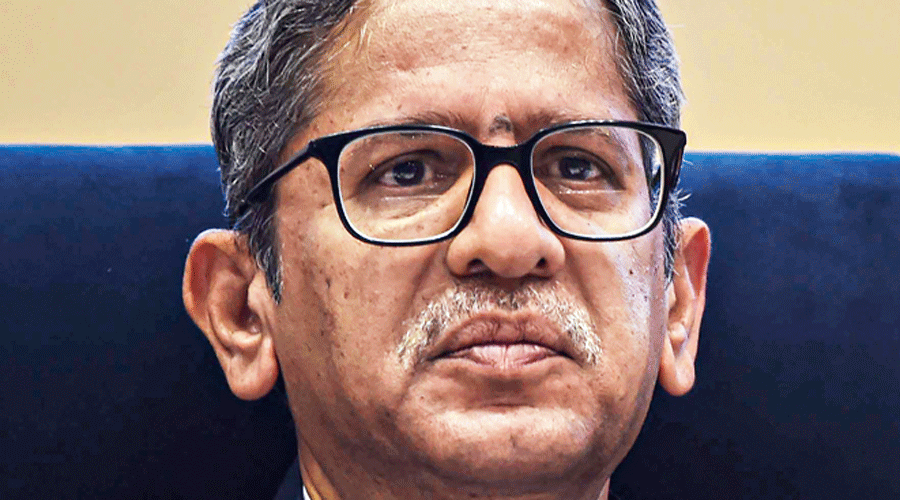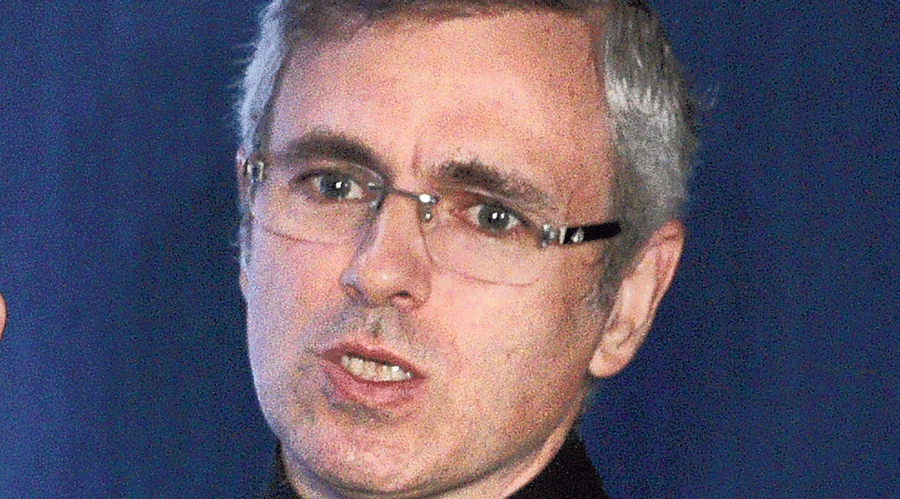Former Chief Justice of India NV Ramana on Saturday termed the government as the 'biggest litigator' and said half of the judiciary's problems would be resolved if it decides to put a halt to State-sponsored litigations.
Speaking at the Indian School of Business (ISB) Leadership Summit 2022 here, he rued that the state of judicial infrastructure in the country even after 75 years of independence was 'disturbing' and a nationwide study he had commissioned revealed certain hard truths about the poor state of judicial infrastructure.
"During the chief ministers and chief justices conference last April, I had the occasion to highlight my understanding of these problems. As I said in the presence of the Prime Minister, one of the major concerns is that the government is the biggest litigator," he said.
The number of inter-departmental disputes, service matters and those relating to inaction of authorities clogging the system is appalling. Half of the judiciary's problem will be solved the moment the government decides to put a halt to the State-sponsored litigation, Justice Ramana said.
Contrary to public belief, the independence of judiciary is limited to adjudication and the judiciary does not have the power when it comes to the financial support and appointments. Coordinating with the government is always like walking a tightrope, he said.
He further said during his 16-month tenure as CJI, the Supreme Court collegium could ensure appointment of 11 judges to the apex court and out of 255 people that it has recommended for the post of judges of various high courts, 233 have already been appointed.
During his tenure, Justice Ramana said he also wanted to foster a sense of belonging among the people towards the judiciary.
The fact that the judiciary is there to serve the people needs to be emphasised and he tried to do that through his public-speaking, he said. He expressed happiness that the media acted as a collaborator in his mission by spreading the message.
He further said he tried his best to fulfil the CJI's duties of being an impartial and fair judge, an able administrator, a visionary and a leader.
"Ultimately, whatever name I may have earned, the People's Judge or the Common Man's Judge, I will be satisfied if I have contributed to the revival and renewal of the image of the court in the eyes of the public," he said.
Justice Ramana, who spoke about the responsibility of young business school graduates, said that while trying to maximise profits, a line must be drawn and exploitation of all forms must be shunned.
Therefore, a basic understanding of the country's Constitution is essential for all, including business students, he said.
Expressing concern over growing economic disparities, he said accumulation of wealth, disproportionately, in a select few hands is a sure-shot formula for friction in society.
Poverty alleviation and equitable income distribution are the need of the hour, he said.
He suggested revival of rural and cottage industries and increasing the robustness of local industry.
He recalled his connection with the ISB which goes back to even prior to setting up of the school as he was Additional Advocate General of the then undivided Andhra Pradesh government.
A petition was filed in the High Court against the AP government, questioning the land acquisition for the establishment of the School and he was involved in strategising the legal battle in coordination with the government of the day, he said.
The High Court ad upheld the grant of land, he said, and handed over a copy of the judgement on the matter to the ISB Dean.











